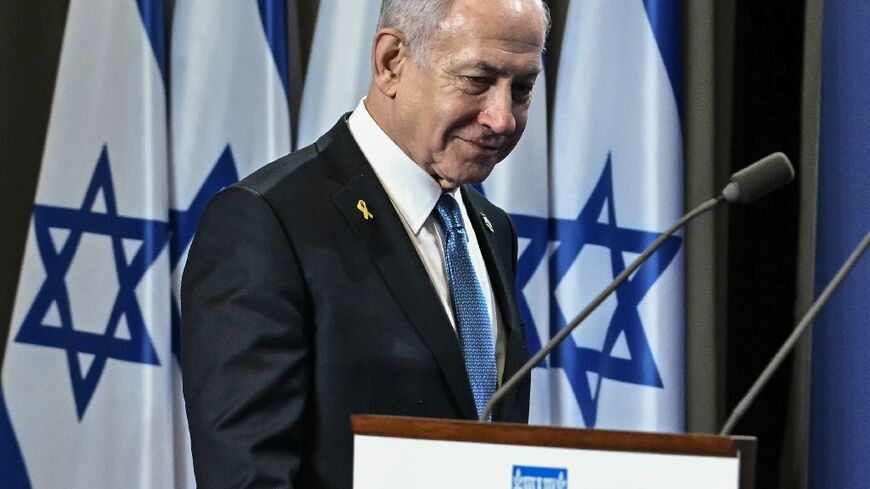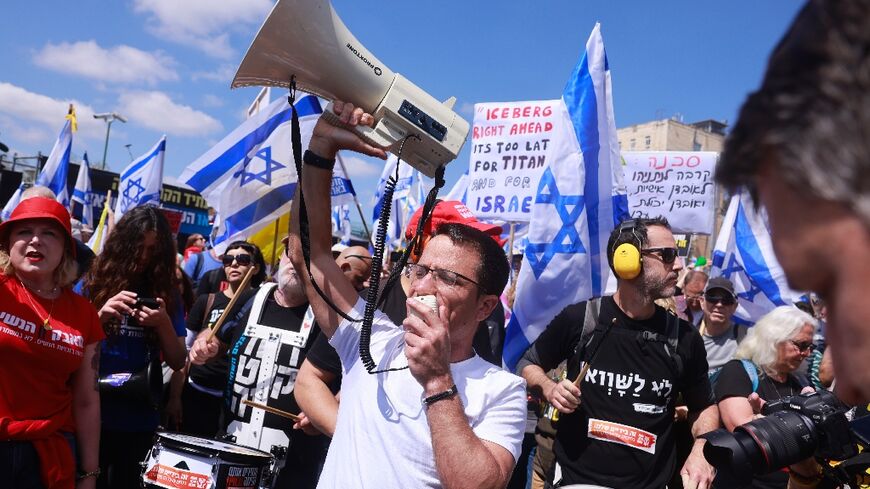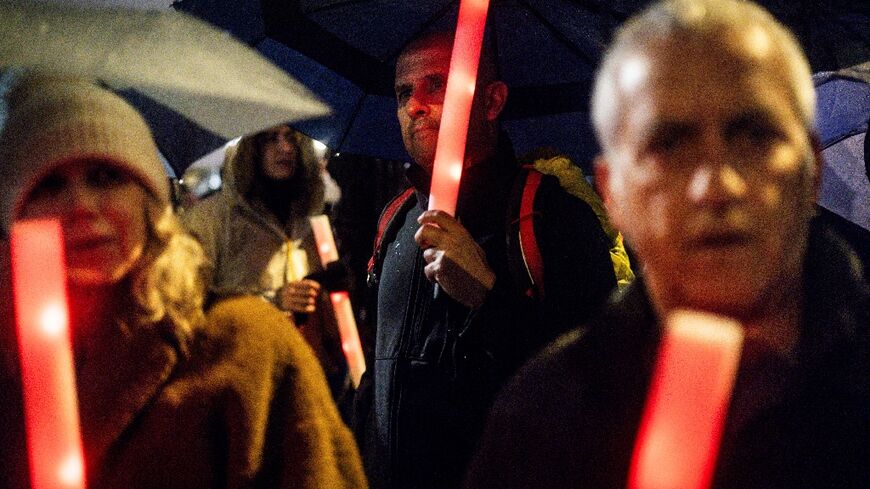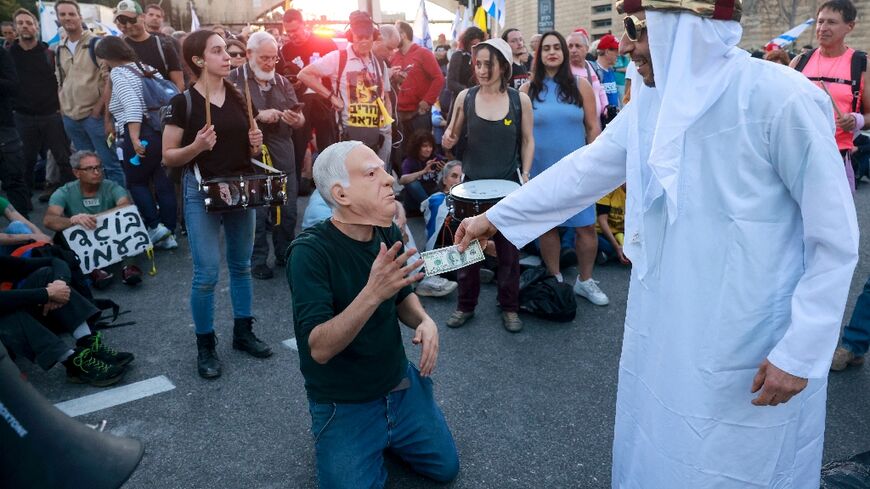Israel supreme court sets deadline for solution on security chief dismissal
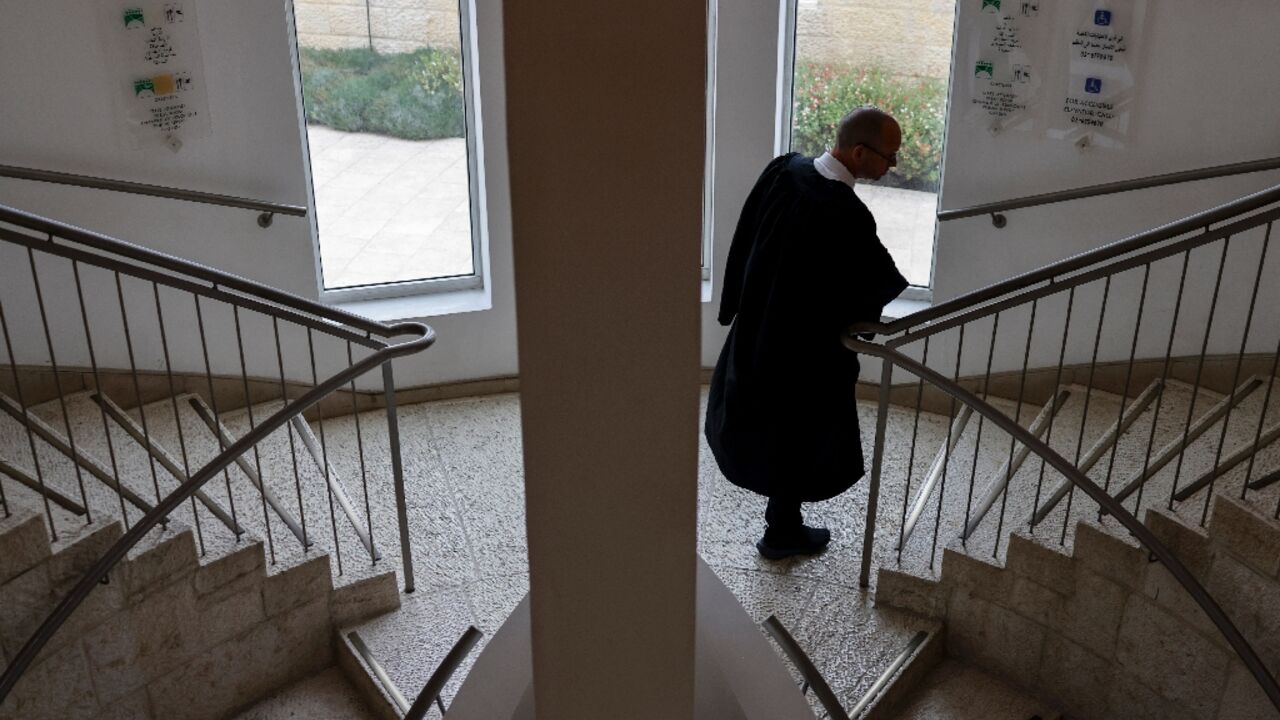
Israel's supreme court on Tuesday gave the cabinet and attorney general's office a deadline to find a solution to the government's hotly-contested decision to sack domestic security chief Ronen Bar.
Following an hours-long hearing which was briefly interrupted with protests from government supporters and critics, Supreme Court President Yitzhak Amit told the two sides to find a compromise.
"Since we saw some sparks of willingness here... we are giving you until after Passover (after April 19) to try to reach some kind of creative solution that is agreed upon" by both sides, Amit said.
Prime Minister Benjamin Netanyahu announced last month that his government had unanimously approved a motion to dismiss the head of the Shin Bet internal security agency, citing "lack of trust" and requiring Bar to leave his post by April 10.
In its ruling, the supreme court said Bar "will continue to perform his duties until a later decision," adding "there is nothing to prevent interviews with candidates for the post, without announcing an appointment".
Netanyahu said the court's ruling "to delay the end of the Shin Bet chief's term by 10 days is puzzling."
The hearing on Tuesday followed petitions filed by opposition parties and non-profit groups, challenging the legality of the government's move which the Supreme Court had already frozen until it issues a ruling.
Protests were held outside the Jerusalem courtroom, and inside, shouts and interruptions forced the judges to halt proceedings after only 30 minutes.
"No court in the world is run this way," Amit said after warning government supporters and critics who interrupted the hearing, which was broadcast live.
Amit called for a recess, during which scuffles between the sides continued outside the courtroom.
The hearing resumed about an hour later, with no audience, "to allow the right to argue without fear for all parties involved", according to the judges.
Attorney Zion Amir, representing the government, said that "this is purely a political petition".
Bar has pushed back against the government's move to sack him, dismissing Netanyahu's arguments as "general, unsubstantiated accusations" motivated by "personal interest".
Bar said the decision was meant to "prevent investigations into the events leading up to October 7 and other serious matters" being looked at by the Shin Bet, referring to the 2023 Hamas attack on Israel.
- 'Anti-democracy' -
Attorney General Gali Baharav-Miara has also cautioned that ousting Bar was "tainted by a personal conflict of interest on the part of the prime minister due to the criminal investigations involving his associates".
Baharav-Miara was referring to a case, dubbed "Qatargate" by Israeli media, involving Netanyahu's close advisers under investigation for allegedly receiving money from the Gulf emirate which has long hosted the political office of Hamas.
Tomer Naor, from the Movement for Quality Government in Israel which submitted one of the petitions, told AFP that "Netanyahu is under a severe conflict of interest".
Dov Halbertal, a lawyer who came to watch the hearing, said that "Netanyahu is the ruler, he can fire whoever he wants, especially this Ronen Bar, the head of the Shin Bet that is responsible for the massacre" of October 7, 2023.
The fact that the court was hearing the petitions was "anti-democracy", he said.
Baharav-Miara, who has often clashed with the Netanyahu administration over the independence of the judiciary, said that firing Bar could lead to the politicisation of the powerful position.
Appointed Shin Bet chief in October 2021 by the previous government, led by opponents of Netanyahu, Bar has clashed with the long-serving incumbent since his return to power in late 2022.
Bar was critical of a government proposal to reform the judiciary, which drew hundreds of thousands of Israelis onto the streets in protest and was temporarily shelved when the Gaza war began with Hamas's attack.
Bar, who was meant to end his tenure next year, had suggested he would consider stepping down early due to his part in failing to prevent the October 7 attack, but only once the war ended and the hostages held in Gaza were freed.
